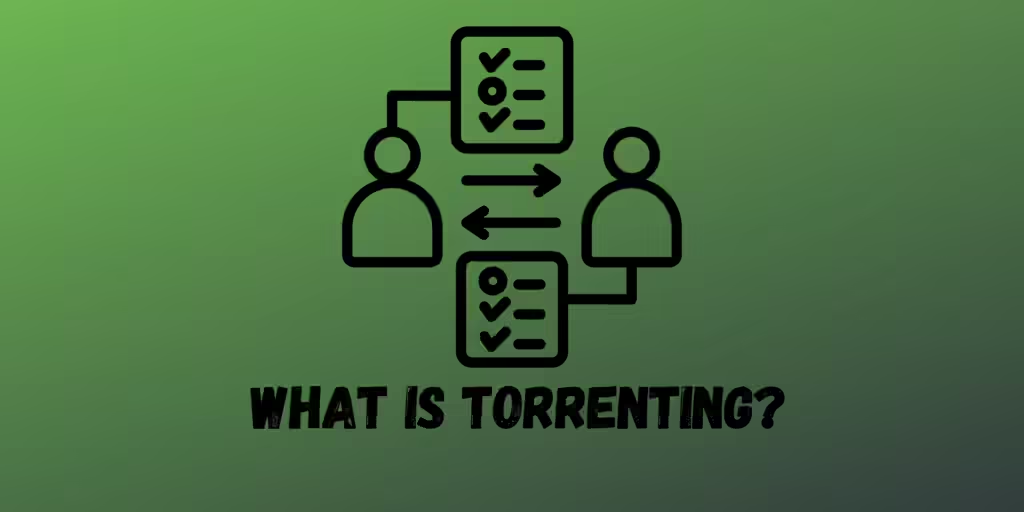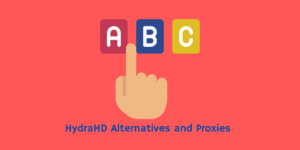Most people think of pirated movies, TV shows, and music whenever torrenting is mentioned. It is definitely the biggest use case of torrent but it is actually much more than that.
So, what else is torrent used for? What exactly is this technology? This article will give you a thorough understanding of what torrenting means, how it works, what it is used for, and whether it is legal or not.
Contents
What Does Torrenting Mean?
Simply put, torrenting is the process of downloading and uploading files via the BitTorrent network. BitTorrent is a decentralized peer-to-peer(P2P) file-sharing protocol that helps users share files in a decentralized manner instead of depending on a central server.
In torrenting, you download files from other users’ devices on the network and upload files from your devices for other users to download. Every person downloading or uploading the same file is called a peer and they are collectively known as a swarm.
The BitTorrent Protocol
BitTorrent is the most popular P2P protocol and dominates the torrenting space.
Peers and Seeders
BitTorrent breaks a file into several smaller pieces and spreads them out to peers. Every peer who has a piece of a file on their device is a member of the swarm.
Each swarm member simultaneously uploads and downloads pieces of the file and exchanges them with each other. A peer stops being a consumer and becomes a seeder when they acquire the entire file. Seeders are important as a torrent with no seeder in its swarm is generally considered dead.
Trackers
Trackers are the phone books of BitTorrent that help connect peers. A part of the file that a peer downloads is the URL needed to connect to the tracker. The torrent client will take that URL and send a message to the tracker, which will provide a list of other peers.
The two connected peers will use the remaining content of the torrent file to identify and exchange the missing pieces of the file.
Trackers are of two types- public and private. There are no requirements or restrictions on becoming a peer and downloading content in public trackers. The Pirate Bay and EZTV are some examples of this.
Private trackers, however, require a login for access and make it compulsory for users to spend a certain amount of time seeding files. This helps to maintain a certain ratio of uploads to downloads. Private trackers usually have faster speeds because of this, as they are less likely to be impacted by leechers.
Magnet Links
Torrent files have largely been replaced by magnet links these days. These links basically contain the same information that torrent files have, i.e., the tracker URL, hashes of the file pieces, and the number of hashes.
The difference is that magnet links function like regular web links and browsers. They open the torrent client and deliver the information directly instead of delivering a file the user’s torrent client must open.
Clients
You need a torrent client to read the information stored in a magnet link or file and carry out the actual download. It connects to the tracker using the torrent file or magnet link and handles the exchange of file pieces with other users. LimeTorrent, uTorrent, and qBittorrent are some examples of popular torrent clients.
Also Read: Top best torrent clients for Mac
Top best torrent clients for Android
Torrenting Benefits
Fast Downloads
The biggest benefit of torrenting is faster downloads. The P2P sharing helps you download large files comparatively faster than traditional download methods, even if you have a slow internet connection.
Downloads are Resumable
Resumable downloads are possible with torrenting. This means that you can pick up from right where you left off if your download was interrupted by a patchy internet connection or computer troubles.
Decentralization
Torrenting involves the use of a P2P protocol, meaning the file you are downloading is not hosted on a central server. Therefore, you can easily use other sources to complete your download if one source is inactive.
Better for Large Files
It is more convenient to send large files via torrent. Torrenting can quickly distribute large chunks of data, saving time, money, and bandwidth.
Torrenting Risks
Copyright Infringement
Torrenting itself is not illegal because it is just a method of sharing files. However, it is mostly used for sharing copyrighted material, which is illegal. If you do this, you are breaking the law by engaging in copyright infringement.
In such cases, the frequency and intensity of prosecution varies depending on where you live. Criminal prosecution has been limited to major distributors and website hosts, not individual users.
ISP Issues
Internet Service Provider(ISP) woes are also common with torrenting. They don’t like it if you take up a much greater portion of your bandwidth while torrenting compared to other internet traffic. Therefore, ISPs often throttle the network if they suspect you are torrenting copyrighted material.
Security and Privacy Issues
Downloading malicious files containing malware is a big risk while torrenting. You can avoid this by sticking to well-established torrent sites and trackers that have a rating or reputation system. Install a good antivirus program if you have to use a suspicious source, and use a VPN to mask your IP address.
Is Torrenting Illegal?
BitTorrent and torrenting are legitimate methods of file transfer. Therefore, torrenting itself isn’t illegal but using it to distribute copyrighted material is. ISPs and copyright trolls monitoring the network can take action if they find you indulging in torrenting.
This can range from sending warning letters and anti-piracy educational materials to throttling your internet connection. Legal action and prosecution in such cases are rare and have largely been limited to major distributors and torrent platforms.
Conclusion
Torrenting is generally associated with piracy of copyrighted material, but it is much more than that. It is a technology that enables efficient sharing and distribution of large files. Despite the popularity of streaming, torrenting continues to be alive and thriving.
Privacy and security are major concerns associated with downloading torrent files on torrent search engines. It is, therefore, prudent to use a VPN and a robust antivirus while seeding and sharing files on a torrent network.




